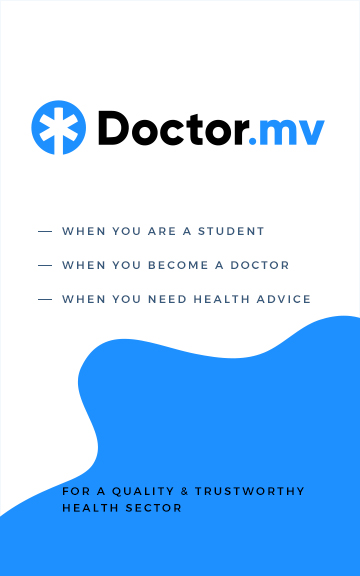Everything you need to know about Medical School Electives

Deciding what specialty to go into after medical school is probably one of the biggest decisions a medical student will have to make. It can be a difficult choice, and one that requires a lot of thought and advice to come to a final answer.
Thus, medical programs contain an elective period which would aid medical students in the decision-making process.
This narrative will explore what a medical elective is, how students can prepare for their elective and how to make the best use of the elective period.
What is a Medical School Elective?
An elective is a period spent away from your resident medical school, often times in a different cultural setting such as a foreign country or even another state. However, an elective can be done at a medical student's own medical school or affiliated teaching hospitals as well.
An elective represents a unique opportunity for medical students to practice medicine under supervision in a setting unfamiliar to that of their medical school or country. Also, it allows students to explore an area of medicine in which they are interested in or something non-traditional such as research or public health.
This is extremely important as students are able to explore a specialty of their choice without the added pressure of exams and other forms of assessments. Thus, students can focus on and fully immerse themselves in the field, learn as much as they can and actually have fun; while simultaneously meeting new people and experiencing another culture.
The length of a medical school elective varies widely, depending on the specialty that you will be rotating in or if the elective is being done abroad or at home. For most medical programs, electives are done in the final year of medical school.
The specialties in which electives can be done are varied depending on the medical school, but generally includes but not limited to anesthesia, radiology, intensive care, pulmonary, cardiology, dermatology and so on.
At the end of any elective period, a student is expected to have a clearer idea of what specialty they want to pursue in residency or to experience specialties they will not encounter in their years of specialization.
Preparing for a Medical School Elective
Preparing for a medical elective is no easy task, as a student must clearly decide which specialty he/she wishes to do.
This can be a very daunting experience and a difficult decision to make, as most students normally choose the specialty they wish to do in residency. However, after the decision is made and the ship has sailed, everything else gets easier.
Another important decision that will be made while going through the preparation process is deciding where to go. For students staying in state or going out, the process is much simpler, but for those going abroad, it can get a bit complex.
Doing Electives Abroad
Whether or not you’re going abroad or staying within the country, all students need to perform a pre-elective process. This is essentially when the student presents the specialty and destination they wish to conduct their elective to the elective coordinator of their medical school.
This process is completed by the student where he or she fills out a form and gives it to the elective coordinator for approval. The process is important as this is when the faculty of the medical school assesses the site you applied to go.
Your destination of choice for rotation is judged on whether or not it is safe and if there are qualified personnel stationed at this site, who can supervise your learning experience and growth; ensuring that you have the best experience possible during your tenure. After your elective has been approved by the faculty, you can now get into the actual planning of your elective.
As was mentioned previously, some students look forward to an exciting adventure outside of their country while others are motivated to learn about health care in a different socio-cultural setting. Whatever the reason may be, there is one thing that stays the same. All students must prepare well in advance before journeying outside their countries for electives.
So, in going abroad there a few things to consider, like visa and vaccines. It is important to check if there are any visa requirements for your destination. Again, vaccination requirements for entry will differ from country to country, so students should confirm that they are adequately vaccinated for the country they will be visiting. This ensures the safety of elective students and also the interests of public health.
Apart from packing clothes for the weather of your destination, medical students should ensure that they pack enough money to last them for their the period of stay, laptops, phones, debit or credit cards and important documents such as a passport, travel insurance, etc.
Although unlikely, students should ensure that they learn what they can about the host country as it relates to crime and violence. Also, on arriving at your elective destination, students should try to find out the culture and the way of life of the locals.
Doing Electives Locally
For students staying within the country, those that are staying in or going out state will have a less cumbersome experience versus that of their counterparts going abroad.
These students will have the added benefit of not having to travel foreign lands and as such their preparation will only include confirming accommodation near the hospital they are rotating at and also transportation to and from the hospital.
However, for those traveling abroad, the preparation process is in a whole different ball game. So medical rotations abroad are something that many students look forward to after years of studying hard in their home country.
How to make the best of your Elective
Choose a Specialty You Love
There is no greater feeling in the world than doing something that you truly love; this embodies what an elective is all about. In choosing something that you actually love, you will be more interested in what is happening and as such will take away a lot more from the rotation.
Thus, students should avoid choosing electives based on the fact that it is easy or in preparation for the board exams. Remember, this is a time to explore what you want to do for the rest of your life, so choose wisely and have an amazing experience.
Choose a Good Destination
The destination a medical student chooses can either break or completely transform their elective into a wholesome and great experience. By choosing a destination that is rich in local and cultural tradition, students will have the opportunity to learn and experience new traditions, thus enriching the elective process.
Also, not every hospital might be well resourced and equipped to give a true taste what your specialty is about. Hence when choosing a site for your elective rotation think hard and long about all the elements that make a destination great!
Learn as much as Possible
This is the field you have chosen, so try as much as possible to be very involved and immersed in what your seniors have to teach you. This is the perfect opportunity to gain proficiency and competency in the area that you have chosen, as unlike normal rotations, electives are less stressful and are void of exams and rigorous in-course assessments.
Conduct a Project or Special Initiative
The elective period is unique as due to the decrease set of requirements it carries, students are able to carry out mini-research projects or even initiate larger ones. It is perfect in that students can do these additional work in their field of interest, which will make them even more competitive at residency interviews.
Conclusion
Your medical elective will be hopefully one of the best experiences of your medical career. It is specially designed for students to gain added clinical expertise in an area of their own choosing, in an environment they were not familiar with.
However, for this to happen, students must first choose their specialty of interest, scout out the destination or site, complete their school's pre-elective process and then wait for the approval. Similarly, medical students can make the best of their elective by choosing a specialty they truly love, learning as much as possible clinically and conducting research projects which will hopefully make them more rounded and competitive.
In essence, wherever you go and whatever you choose, spend some time planning to ensure you have a rich and fruitful experience without any hiccups.
What are your thoughts?



Leave a comment
0 Comments